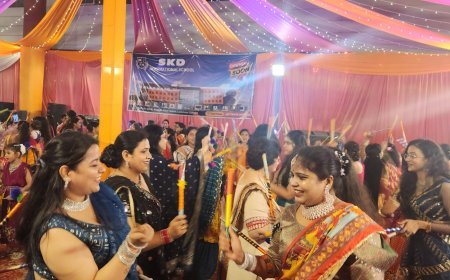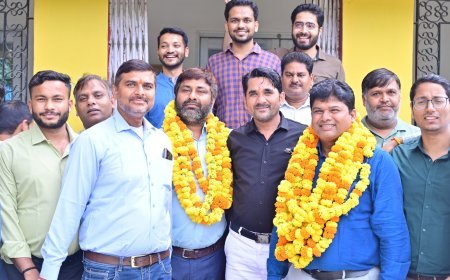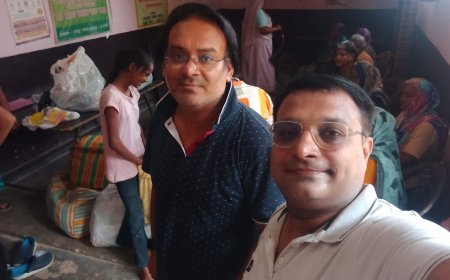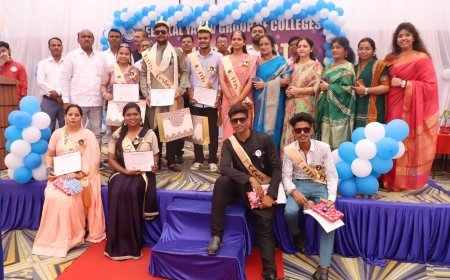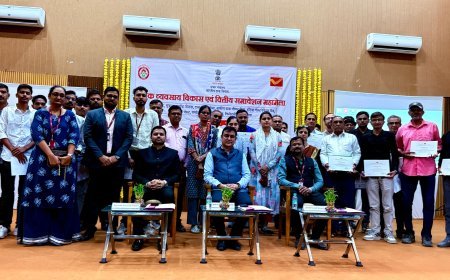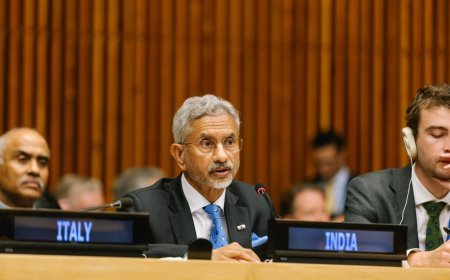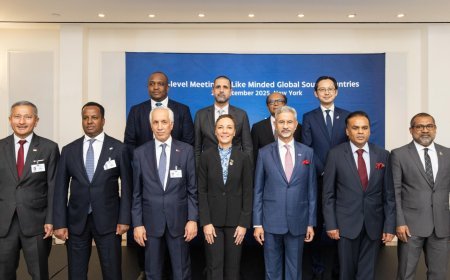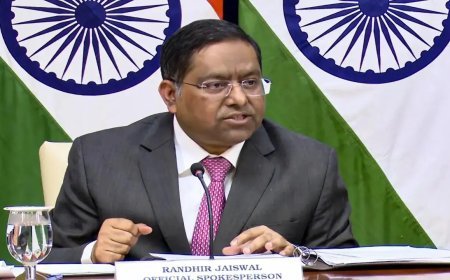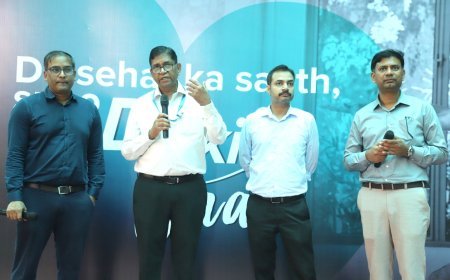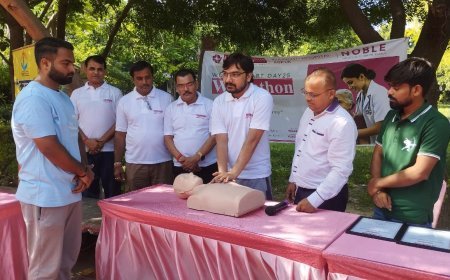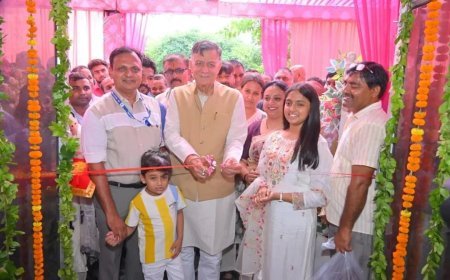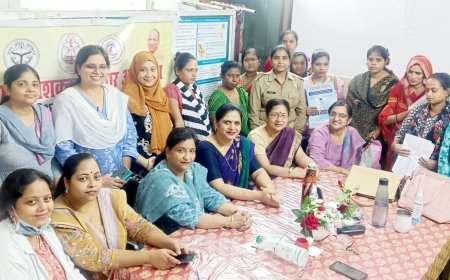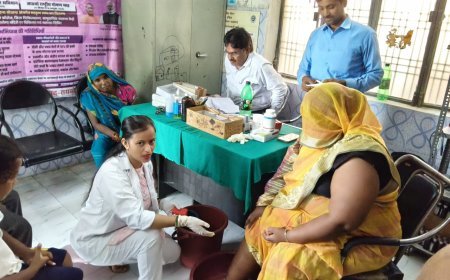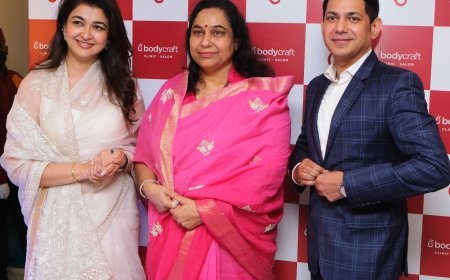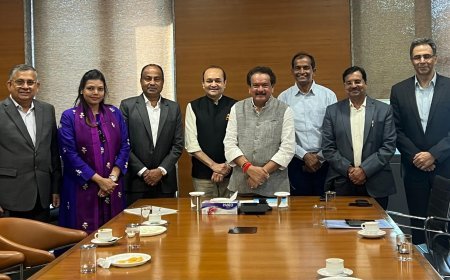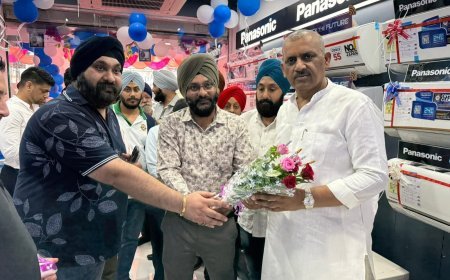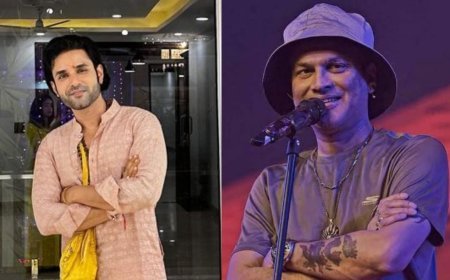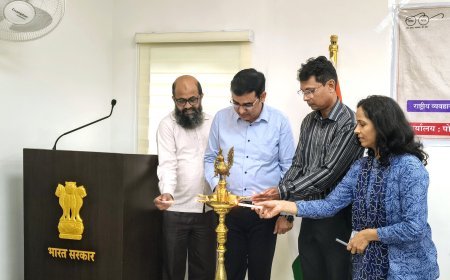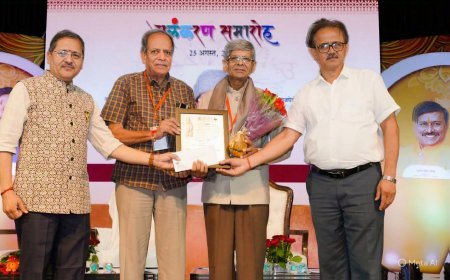National Chintan Baithak Charts Vision for Bhartiya Academic Renaissance
Thought leaders converge at Kalady for a strategic five-year roadmap to revive India's education rooted in Bhartiya knowledge systems.
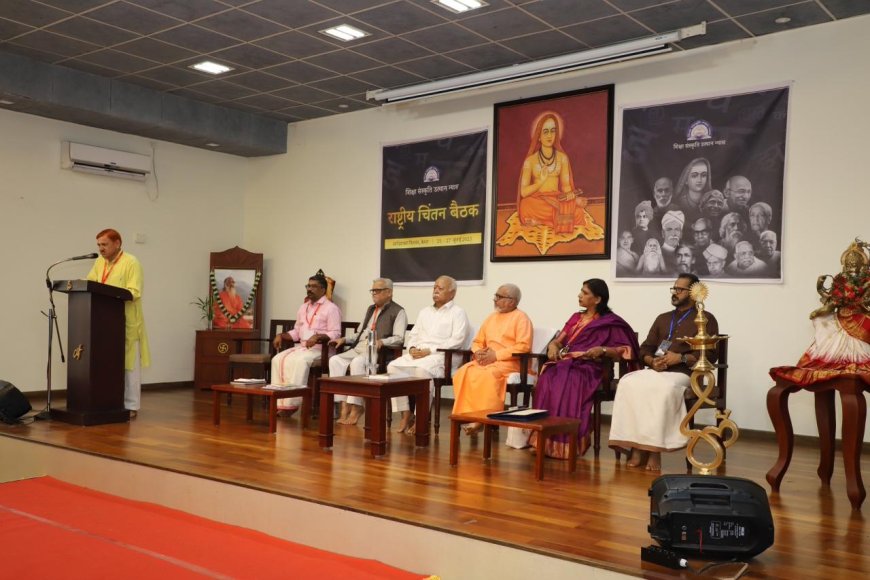
Kalady, Kerala : The birthplace of Adi Shankaracharya—Kalady—played host to a significant milestone in India’s educational reform journey, as the National Chintan Baithak 2025 was inaugurated at Adi Shankara Nilayam by P.Pu. Dr. Mohan Bhagwat, the Sarsanghchalak of the Rashtriya Swayamsewak Sangh. The event marked the third national-level brainstorming session of the Shiksha Sanskriti Utthan Nyas (SSUN), an organization deeply committed to reimagining India's educational ethos through Bhartiya knowledge systems.
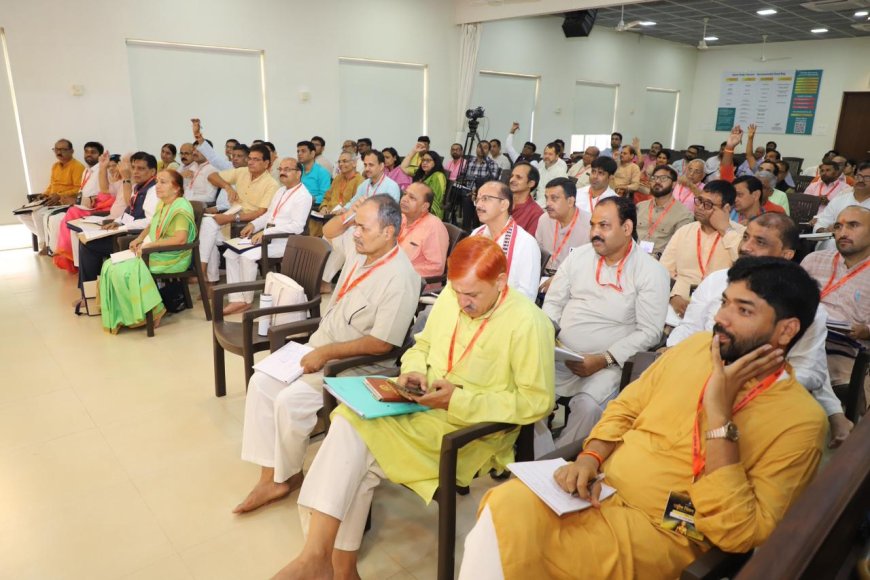
In his keynote address, Dr. Atul Kothari, National Secretary of the Nyas, emphasized the need for harmonizing materialism and spirituality in modern education. He asserted that transforming India’s educational framework and advancing the mission of the Nyas are intrinsically linked. “We must move beyond identifying problems. It’s time to focus on viable, sustainable solutions,” he declared, underscoring the session’s objective of developing a robust five-year action plan.
Highlighting the legacy and continuity of this national dialogue, Dr. Kothari recounted the earlier Chintan Baithaks held in Vrindavan (2012) and Coimbatore (2019), with this year’s gathering in Kalady symbolizing spiritual and intellectual grounding.
He reaffirmed the Nyas’s foundational goal of offering a constructive, Indianized alternative to the dominant education model rooted in colonial constructs. “Events like Gyanotsav, Gyan Kumbh, and Gyan Sabha have served their purpose, but to scale the vision, we must deepen grassroots engagement,” he said.
Delivering a heartfelt welcome, Acharya Vivittananda, head of Chinmaya Mission in Kerala, reflected on the historic and cultural significance of the venue. “It is our privilege that this vital educational discourse is unfolding here,” he said. He applauded the Nyas’s tireless efforts to dismantle the remnants of the Macaulay system and welcomed the momentum toward Indianizing education across Bharat.
In a complementary tone, Dr. Pankaj Mittal, Chairperson of SSUN, reiterated the organization’s core philosophy: “Education in Bharat was never merely about employment; it was about human excellence. We must return to that vision, adapting it for today’s world.” She advocated a curriculum that interweaves ancient wisdom with contemporary relevance.
The second session of the day saw Dr. Kothari outlining the structural evolution of the Nyas. What began with a focus on six fundamental areas has now expanded to 11 thematic domains (Vishay), three core dimensions (Aayam), three work divisions (Karya Vibhag), and two national campaigns (Abhiyan). This structured framework reflects the organization’s transition from protest to proactive transformation.
He recounted how the Shiksha Bachao Andolan, which raised awareness about distortions in the education system, gave birth to the Nyas—a movement born not only to critique but also to build and integrate solutions within existing systems.
“Speeches alone will not change the system. We must become part of it and transform it from within,” Dr. Kothari stressed, reflecting the Nyas’s grassroots orientation.
Atharva Sharma, National Media Head of the Nyas, described the Baithak as a vital junction for introspection and strategy. He noted that the presence of key educational thinkers, spiritual leaders, and grassroots reformers marked this gathering as a collective pursuit of educational renaissance.
The session was conducted by Shri Sanjay Swami, Co-Convenor of the Nyas, with notable attendees including A. Vinod (Convenor, Nyas) and Shri Sudarshan from Chinmaya Mission.
As the discussions move into deeper planning phases over the next few days, the focus will remain clear—awakening the soul of Bharat through its education system.
The Nyas believes that true reform requires the synergy of society and government, with educators playing a crucial role in laying the foundation for transformative change. This National Chintan Baithak stands not only as a review of past achievements but as a call to collective action for the future of Indian education.
What's Your Reaction?
 Like
1
Like
1
 Dislike
0
Dislike
0
 Love
0
Love
0
 Funny
0
Funny
0
 Angry
0
Angry
0
 Sad
0
Sad
0
 Wow
0
Wow
0

